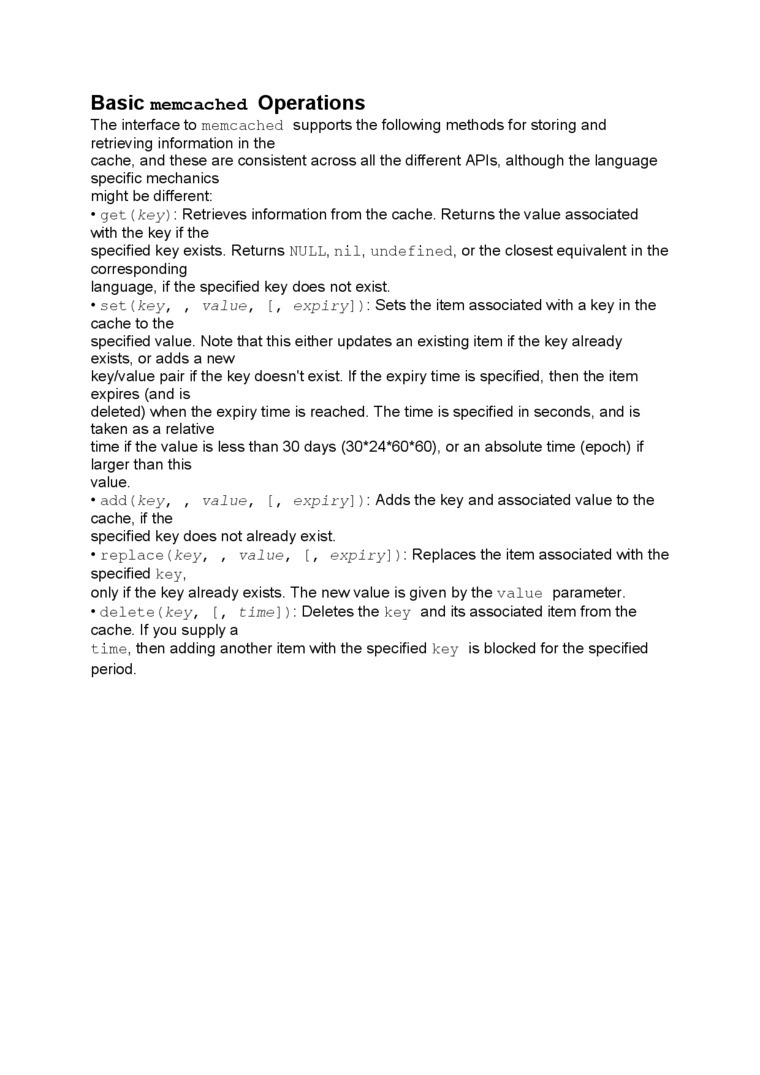89281

Basic memcached Operations
The interface to memcached supports the following methods for storing and retrieving information in the
cache, and these are consistent across all the different APls, although the language specific mechanics might be different:
• get (key): Retrieves information from the cache. Returns the value associated with the key if the
specified key exists. Returns NULL, nil, undefined, or the closest equivalent in the corresponding
language, if the specified key does not exist.
• set (key, , value, [, expiry]): Sets the item associated with a key in the cache to the
specified value. Notę that this either updates an existing item if the key already exists, or adds a new
keyA/alue pair if the key doesn‘texist. If the expiry time is specified, then the item expires (and is
deleted) when the expiry time is reached. The time is specified in seconds, and is taken as a relative
time if the value is less than 30 days (30*24*60*60), or an absolute time (epoch) if
larger than this
value.
• add [key, , value, [, expiry]): Adds the key and associated value to the cache, if the
specified key does not already exist.
• replace (key, , value, [, expiry]): Replaces the item associated with the specified key,
only if the key already exists. The new value is given by the value parameter.
• delete(key, (, time)): Deletes the key and its associated item from the cache. If you supply a
time, then adding another item with the specified key is blocked for the specified period.
Wyszukiwarka
Podobne podstrony:
Topological Asymptotic Expansion of the Steklov-Poincare Operator The proposed method of asymptotic
SV3GLL this is SQ9ZAQ. Thank you for the QSO. 73 for you and I hope to have another contact with you
f11 7 MFC AppWizard - Step 6 of 6jx
Includes SISO measurements without changes to test setup SISO OTA measurements for 2G and 3G legacy
In comparing the API specs for L-80 and N-80 tubulars, which of the following statements is TRUE? A.
więcej podobnych podstron